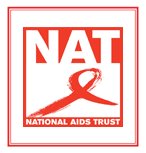
What Do AIDS Awareness & Transportation Justice Have in Common?
If it is merely coincidence that they share the first of December as their commemorative anniversary, the fact that these two significant issues for people of African descent share the need for a tireless critique of race/gender/class & sexuality is more than trivial to us. That is, today we must tie all consciousness-raising back to educating people worldwide about universal human rights, especially if we are among those who would declare themselves the global enforcers and purveryors of democracy.
What Color is AIDS? Is Access to Physical Well-Being, Health Care & Medicine a Universal Human Right?
In 2005, more than 3 million people contracted HIV, thus there are now greater than 40 million persons living with HIV and AIDS.
Three quarters of the people living with AIDS are in Africa, less than one percent of whom have access to medicine or "life-prolonging" treatment.
In the USA, more than half of all HIV infections are among African-Americans. Some of the obstacles to adequate treatment include lesser access to healthcare in general, and limited funding. Ironically, languaging in the Minority AIDS Initiative makes it difficult to apply federal monies appropriated for ethnic minorities to the most afflicted "racial" communities, i.e., African-Americans.
Well, thank goodness for World AIDS day; raising awareness about this dreadful disease and changing all of the crazy foundational logic that prevents us from finding and applying a global cure will eventually invigorate a universal, global understanding of structural inequality and eradicate that too.
What does public transit have to do with democracy?
Exactly fifty years ago, Rosa Parks defied the law and remained seated on a bus in Montgomery, Alabama to bring the issue of racial inequality to the attention of the broader USAmerican public. Today, then, we should be cognizant of how access to public transportation or the lack thereof can continue to exaccerbate and reproduce the effects of social inequality in our society, especially for women of color.
According to the American Public Transit Association, women remain the most frequent users of public transportation. In fact, low income African-American women take five times more trips by public transit than the general female population. (Six times more trips than men.)
According to the Women's Foundation of California, access to safe, affordable and reliable transportation is one of the top three factors determining whether low-income women will obtain and keep work. Similarly, studies prove that access to public transit increases the participation of low-income girls in after-school programs and their likelihood to graduate.
It should come as no surprise, then, that the World Bank Development Fund has concluded that women's access to public transportation is one of the strongest indicators of whether societies transitioning toward democracy will make it.
This is because transportation means access to trade, work, school, public life, healthcare and the outdoors. Effectively access to transportation defines one's "quality of life."
Is a "quality" life a human right?
(Needless to say, we think so.)

No comments:
Post a Comment